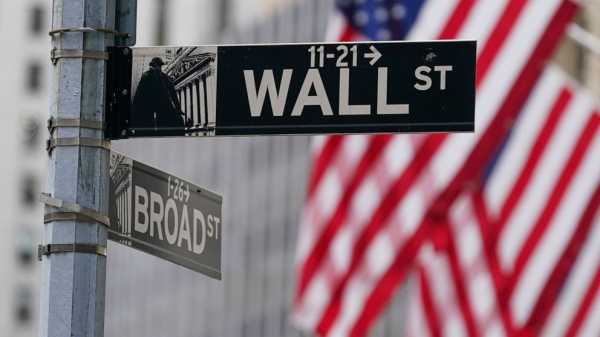
BANGKOK — Shares were mixed in Asia on Wednesday after a modestly higher close on Wall Street as concerns over pressures on global growth tempered gains in the absence of major data releases.
Tokyo’s benchmark Nikkei 225 index slipped 0.2%, to 26,395.49, a day after the Bank of Japan gave in to pressure on the yen by expanding the cap on the yield of the 10-year Japanese government bond to 0.50%. It had been 0.25%.
On Tuesday, the Nikkei 225 lost 2.5%.
The slight softening of the Japanese central bank’s opposition to raising interest rates to cut inflation rattled world markets Tuesday, with bond yields pushing higher. The BOJ has kept its key lending rate at minus 0.1% for years, trying to spur growth by keeping credit ultra cheap.
Higher yields make borrowing more expensive, which slows the economy and can alleviate upward pressure on prices, while at the same time pulling prices for stocks and other investments lower.
The widening gap between the BOJ's benchmark rate and rising interest rates in the U.S. and other economies has pulled the value of the yen sharply lower, causing prices for imported oil, consumer goods and industrial inputs to surge and adding to pressures on its economy.
“Ultimately, the BOJ is reacting to a dysfunctioning bond market and a weakening yen. But the move also represents the fall of one of the last central bank hold-outs of ultra-low rate policy," Stephen Innes of SPI Asset Management said in a commentary.
Central banks around the world have been raising rates at an explosive clip and a growing number of economists and investors see a recession hitting in 2023. Both the Federal Reserve and European Central Bank have pledged to keep raising rates into next year to be sure they get inflation under control.
At the same time, fresh waves of COVID-19 infections in China, Japan and other countries are casting a shadow over pandemic recoveries.
In other Asian trading, Hong Kong's Hang Seng inched up 0.1% to 19,111.70 and the Shanghai Composite index edged 0.1% lower to 3,070.03.
South Korea's Kospi lost 0.7% to 2,329.98. In Sydney, the S&P/ASX 200 gained 1.3% to 7,115.70. Shares rose in Bangkok and Taiwan but fell in Singapore and Mumbai.
On Tuesday, the S&P 500 rose 0.1% after flipping between small losses and gains in the early going. It closed at 3,821.62.
The Dow Jones Industrial Average rose 0.3% to 32,849.74 and the Nasdaq composite barely budged after closing less than 0.1% higher, at 10,547.11. Small company stocks outdid the broader market, lifting the Russell 2000 index 0.5% higher, to 1,748.02.
The muted gains were enough to end a four-day losing streak for the major indexes.
The yield on the 10-year Treasury rose to 3.70% from 3.59% late Monday. That yield helps set rates for mortgages and other economy-setting loans, which has already meant particular pain for the U.S. housing market.
A report on Tuesday showed U.S. homebuilders broke ground on fewer homes for a third straight month in November. The number of building permits, meanwhile, fell to its lowest level since June 2020 when the pandemic froze the economy.
The two-year U.S. Treasury yield, which tends to more closely track expectations for action from the Federal Reserve, was more reserved. It held steady at 4.26%.
In the foreign exchange market, the dollar rose to 132.22 Japanese yen from 131.62 yen. Tokyo’s surprise move on Tuesday pulled the dollar 4% lower against the yen.
U.S. benchmark crude oil shed 3 cents to $76.20 per barrel in electronic trading on the New York Mercantile Exchange. It gained 1.2% on Tuesday.
Brent crude, the pricing basis for international trading, was unchanged at $79.99 per barrel.
———
AP Business Writers Stan Choe, Damian J. Troise and Alex Veiga contributed.
Sourse: abcnews.go.com






